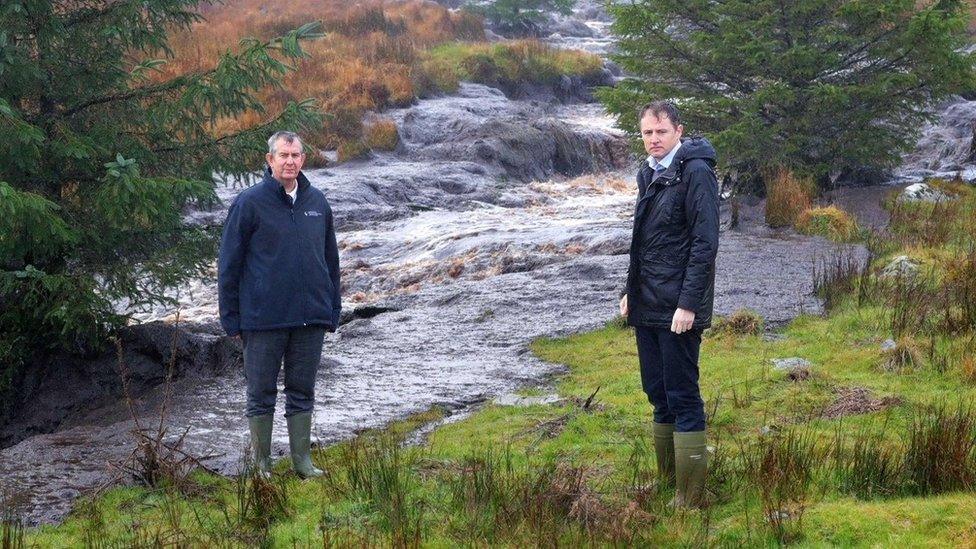Donegal: Peat landslide had 'significant' impact on Tyrone river
- Published
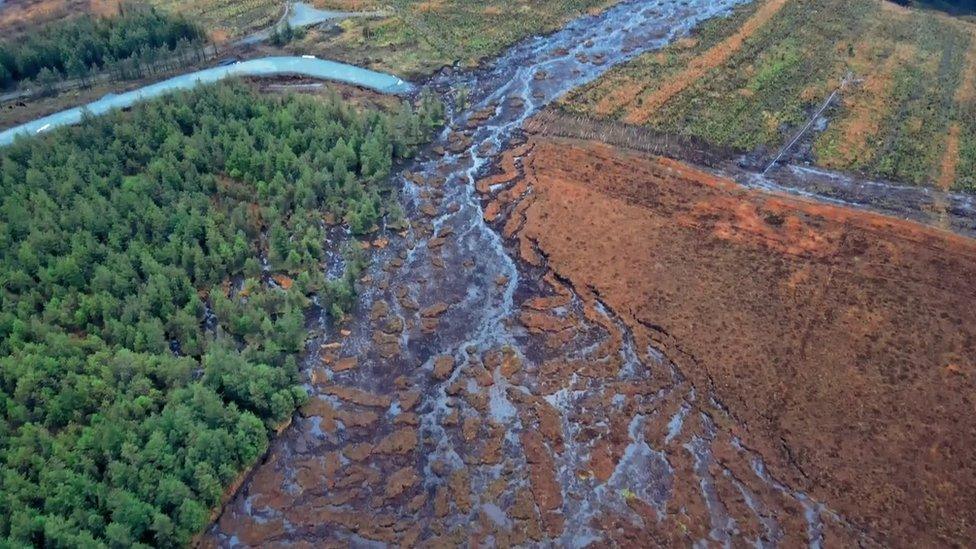
Mr McCartney described November's peat landslide as a "catastrophic" event.
A peat bog collapse in County Donegal in November has had a "significant effect" on a large stretch of a County Tyrone river.
John McCartney, from the Loughs Agency, said it may be the spring of this year before the full picture emerges.
The agency is one of a number of bodies investigating the incident.
Mr McCartney was giving evidence to MLAs on the investigation into the collapse of the bog near Ballybofey.
On 13 November last year, a large quantity of peat slid down the hillside and ended up in the Mourne Beg river in County Tyrone.
The river is an important spawning river for salmon and angling groups have previously warned that the river may struggle to recover.
Mr McCartney told Stormont's agriculture committee that the incident was under "criminal investigation" and described it as a "catastrophic" event.
He said there would be a significant effect for a number of miles on the Mourne Beg River which is also home to trout and eels.
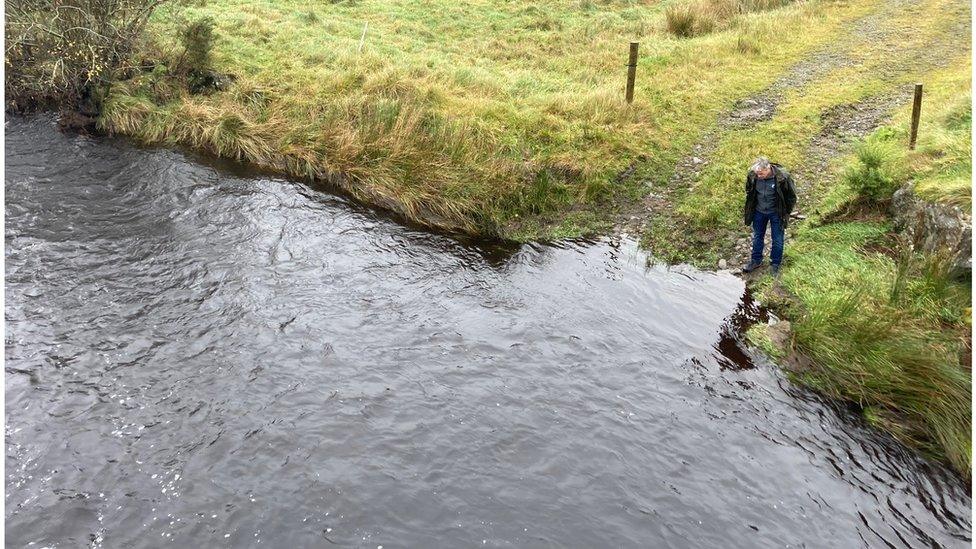
Anglers have previously voiced concerns the river may never full recover
He said the ability of fish to "recolonise" is often surprising but said he also had worries that the bed of the river may be "clogged with peat and fine sediment".
The investigation, which he described as "complicated", was currently in the data collection stage, he added, and the next step would be to look at a restoration plan for the site.
A number of agencies both north and south of the border are involved in the ongoing investigation including the Loughs Agency, NI Water, Derry City and Strabane District Council, the Irish Environmental Protection Agency and Donegal County Council.
Last year Agriculture Minister Edwin Poots visited the site and met his Irish counterpart Charlie McConalogue.
At the time Mr Poots described the scale of the damage as "shocking" and serious.
After the incident, NI Water temporarily suspended drinking water supplies as a precaution. The matter was also raised in the Dáil.
Related topics
- Published16 November 2020
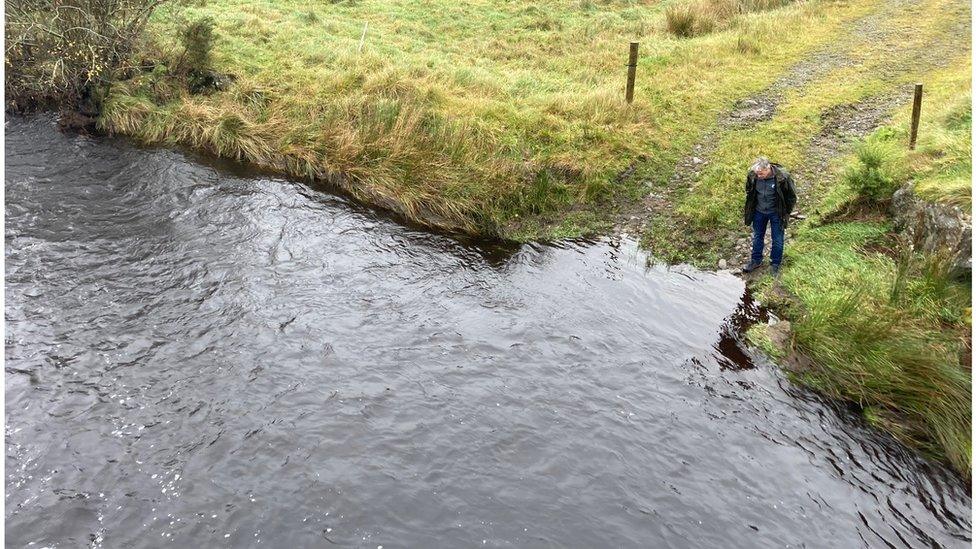
- Published18 November 2020
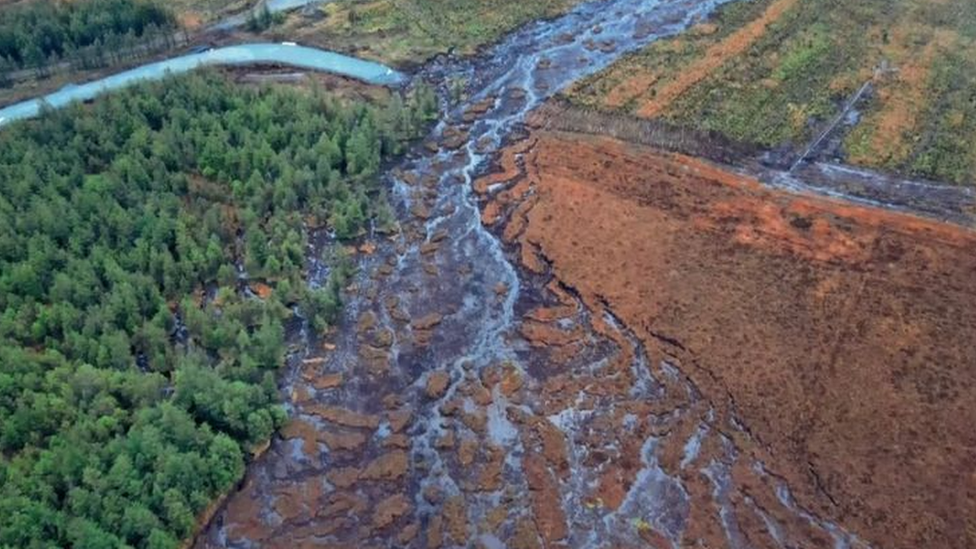
- Published20 November 2020
